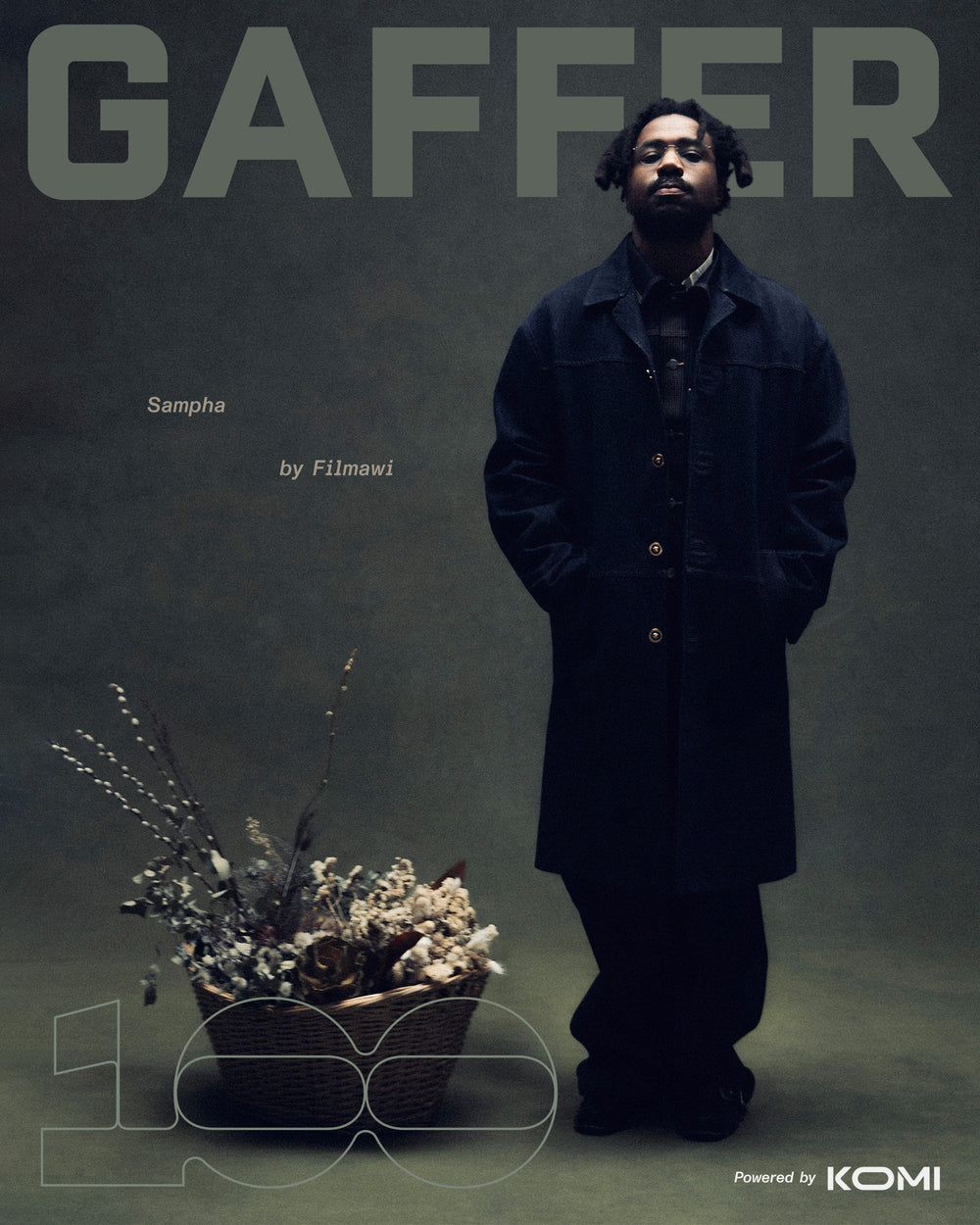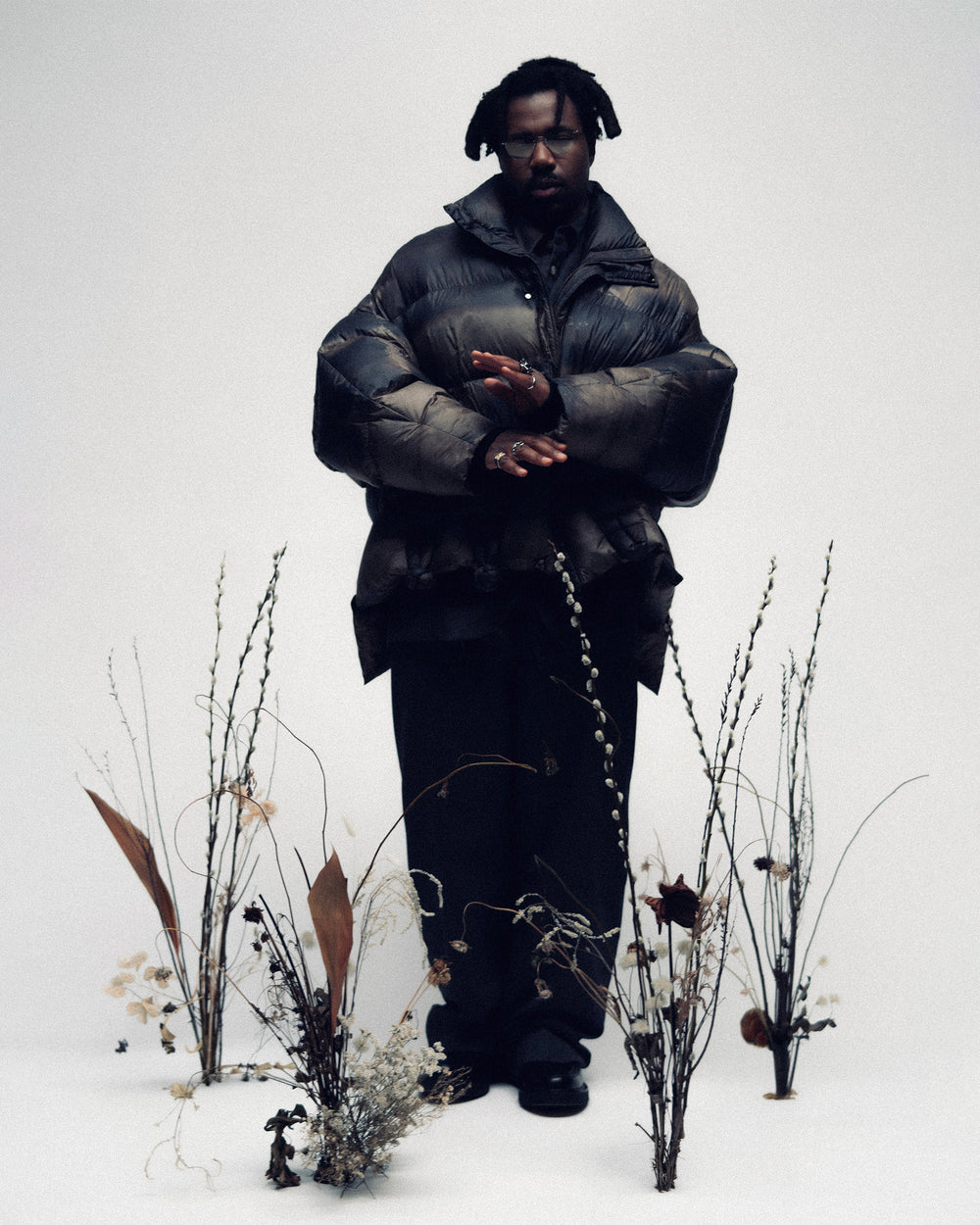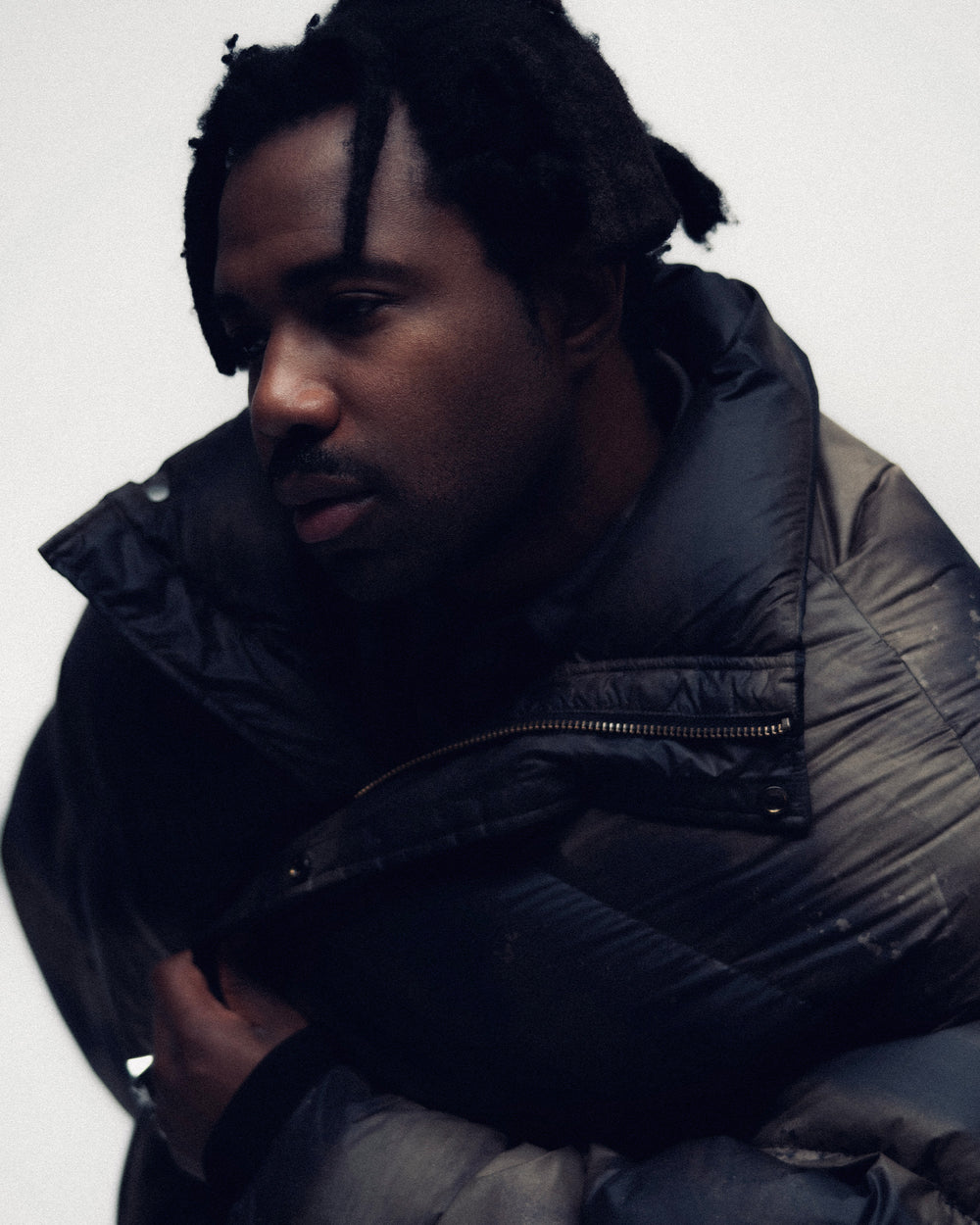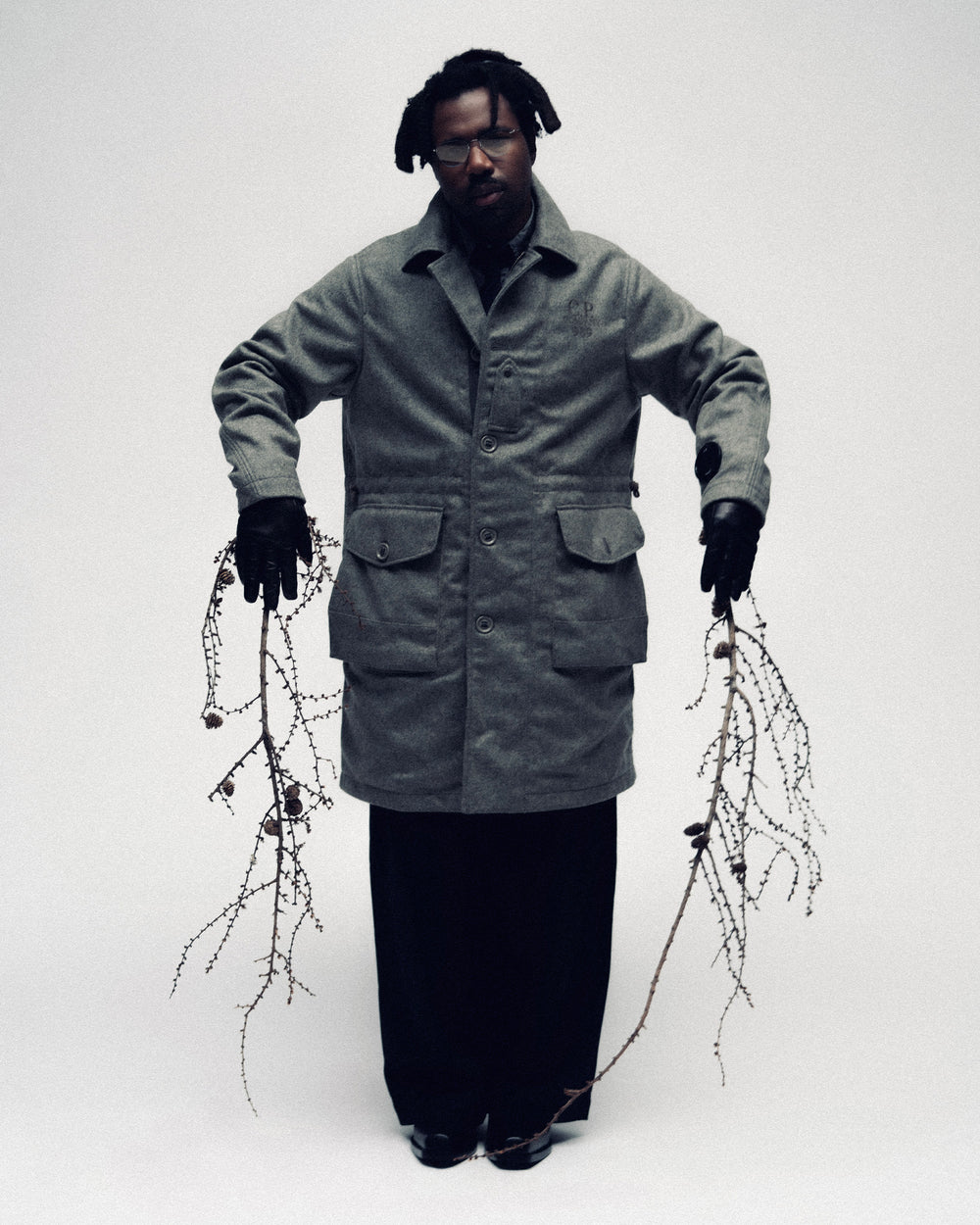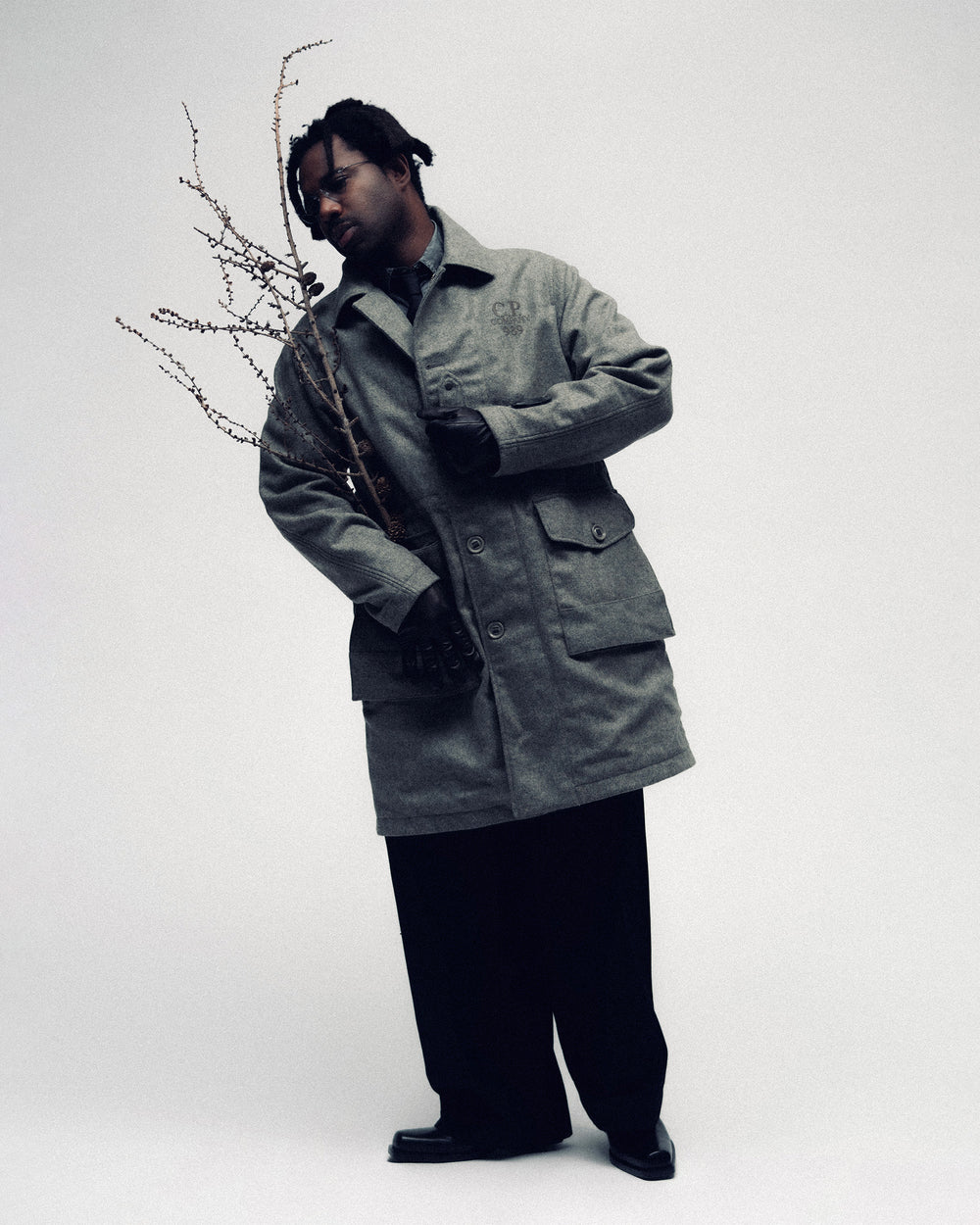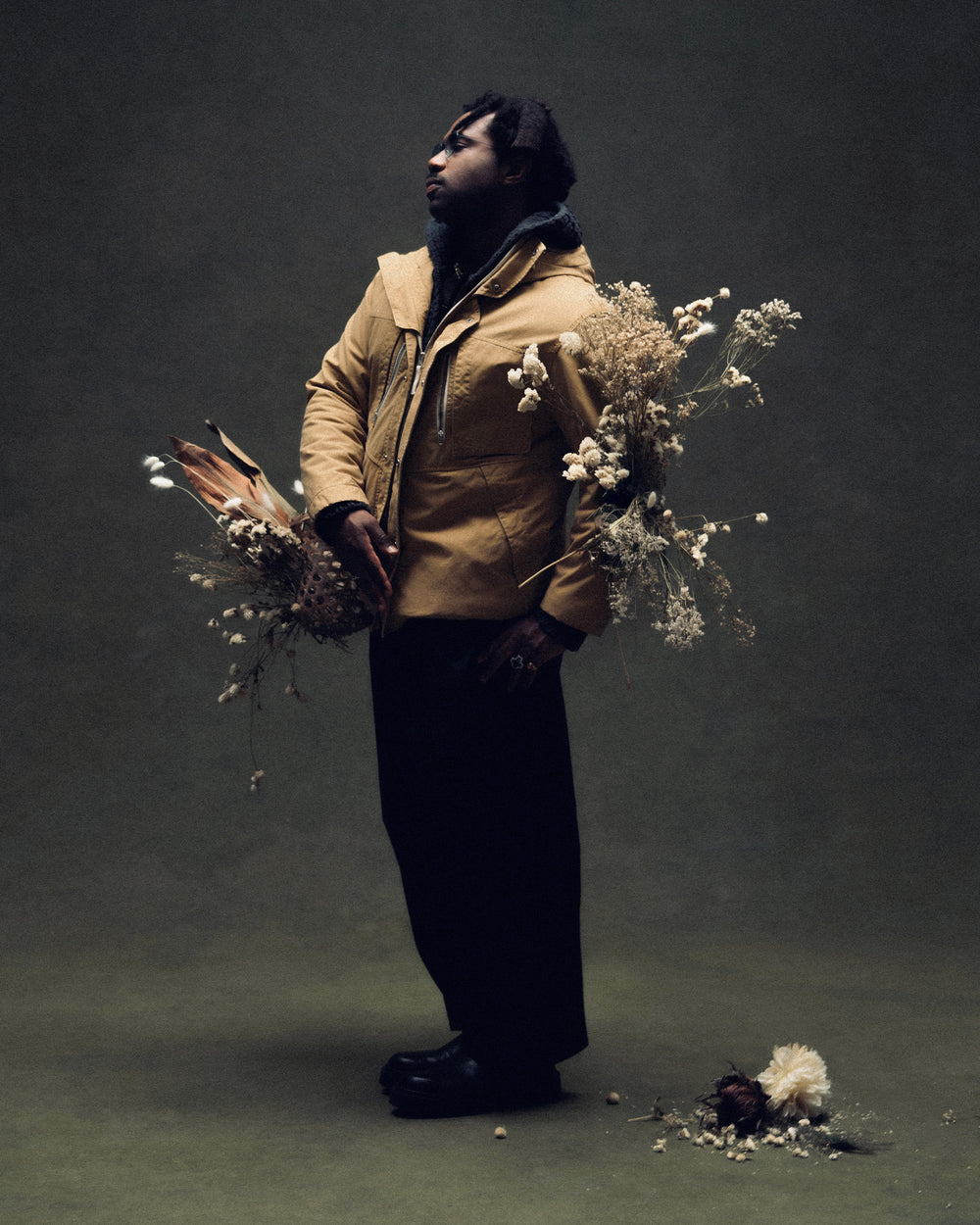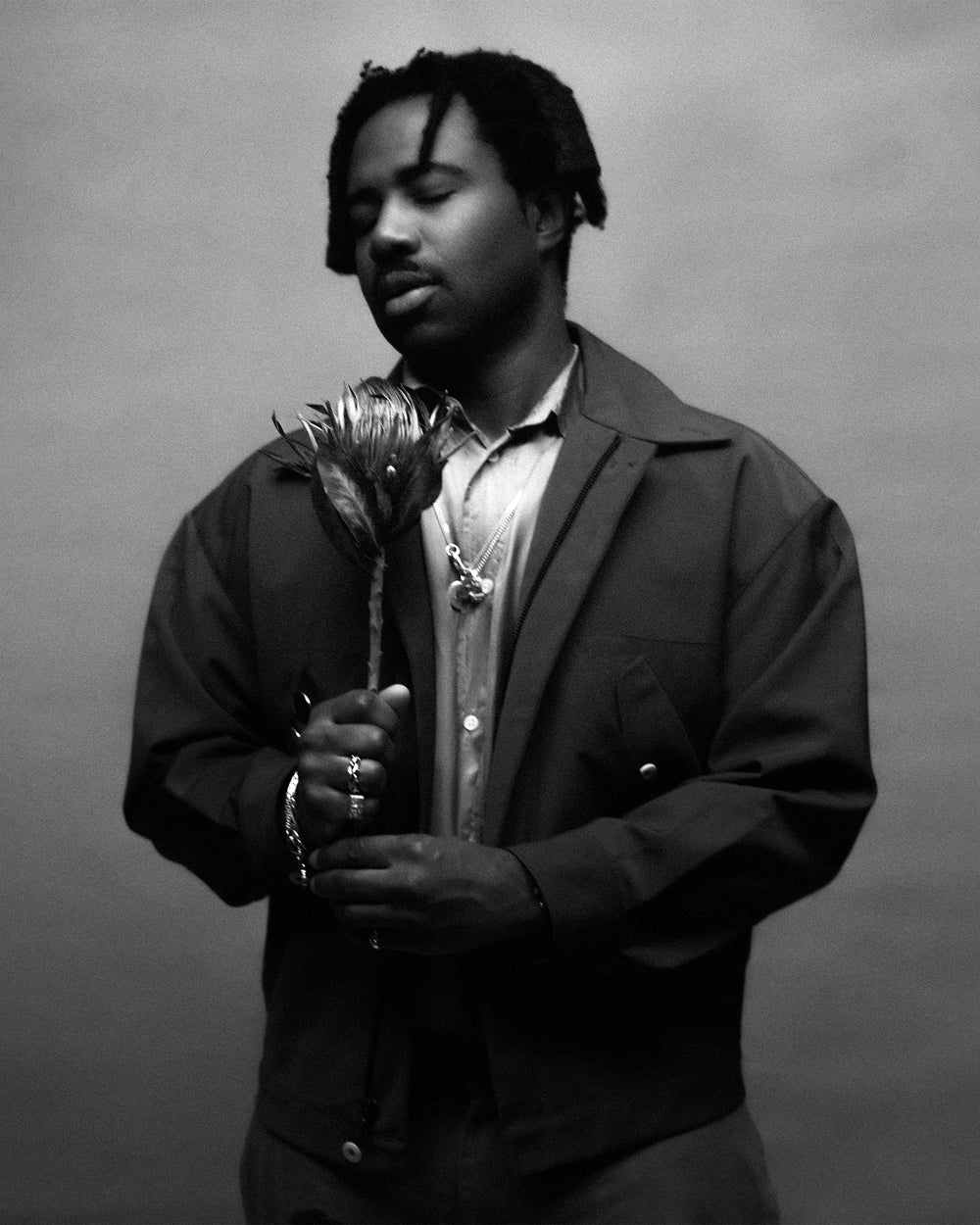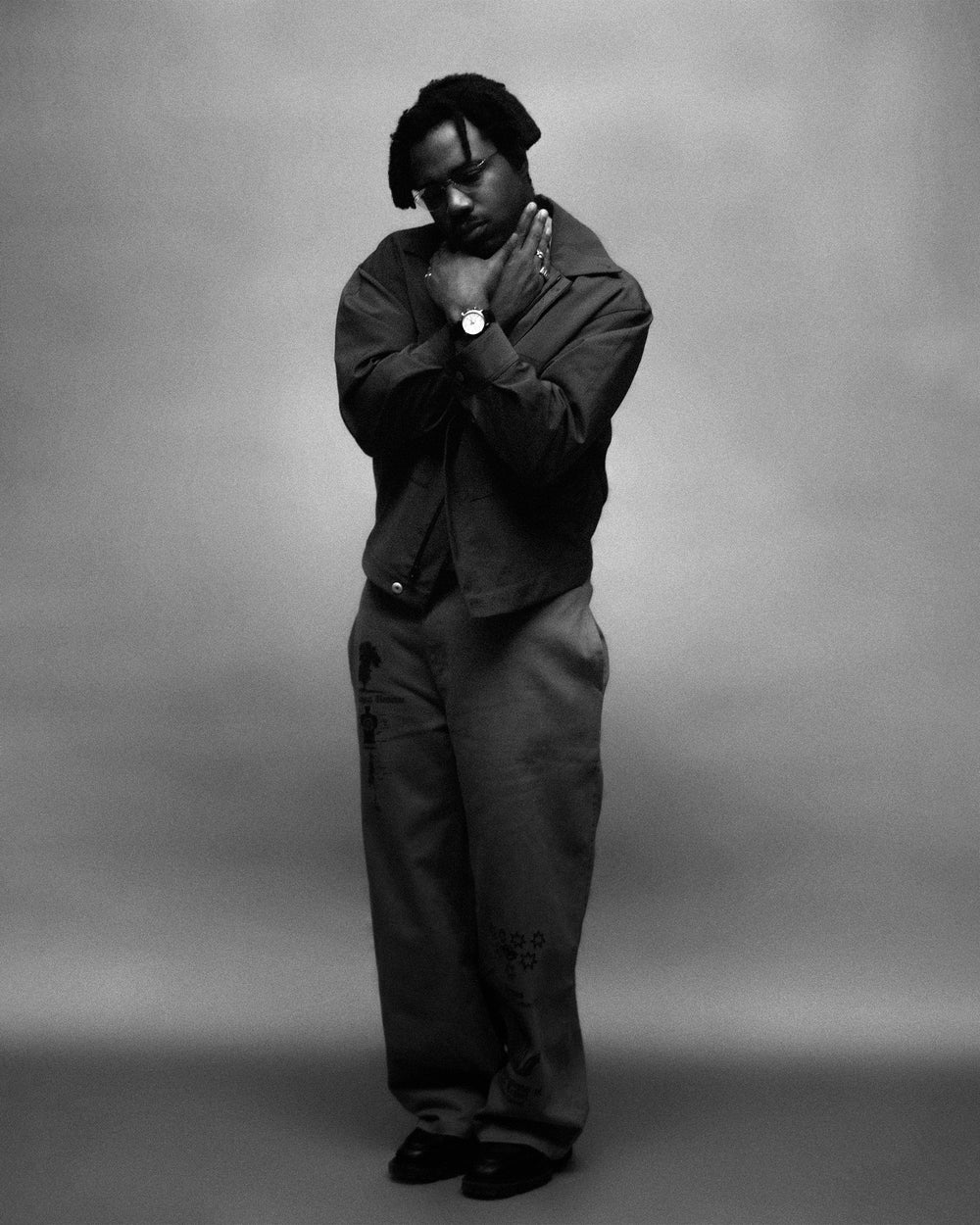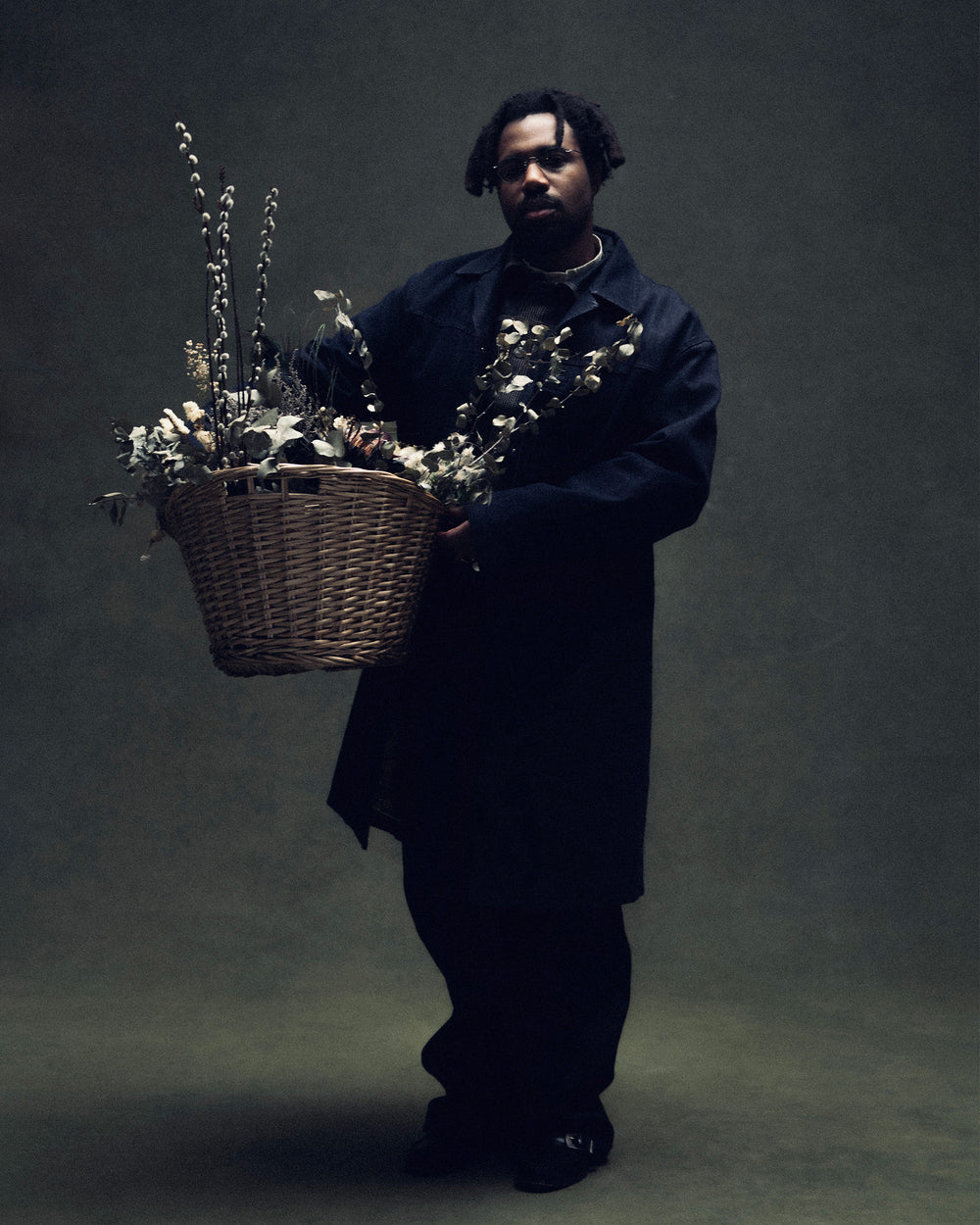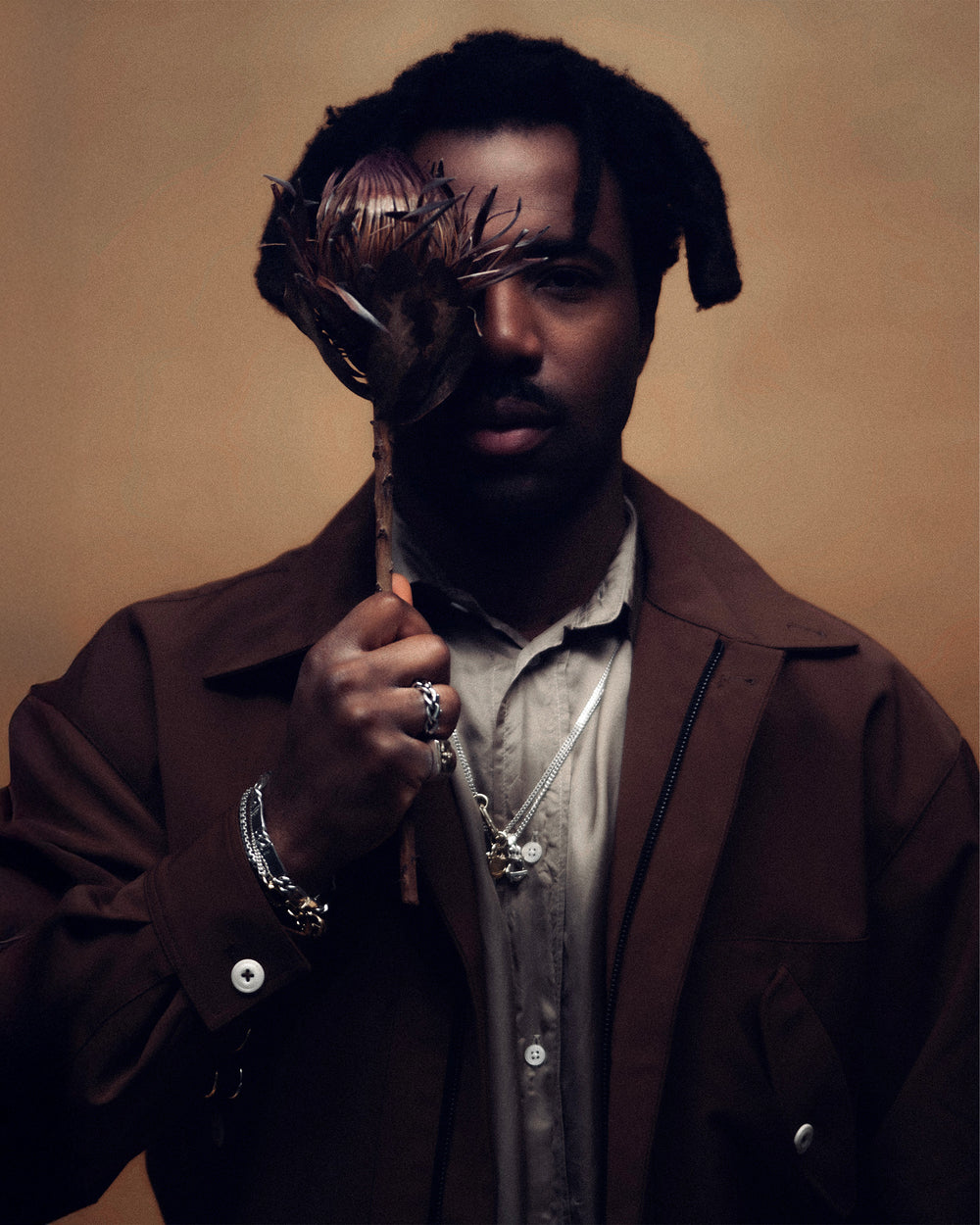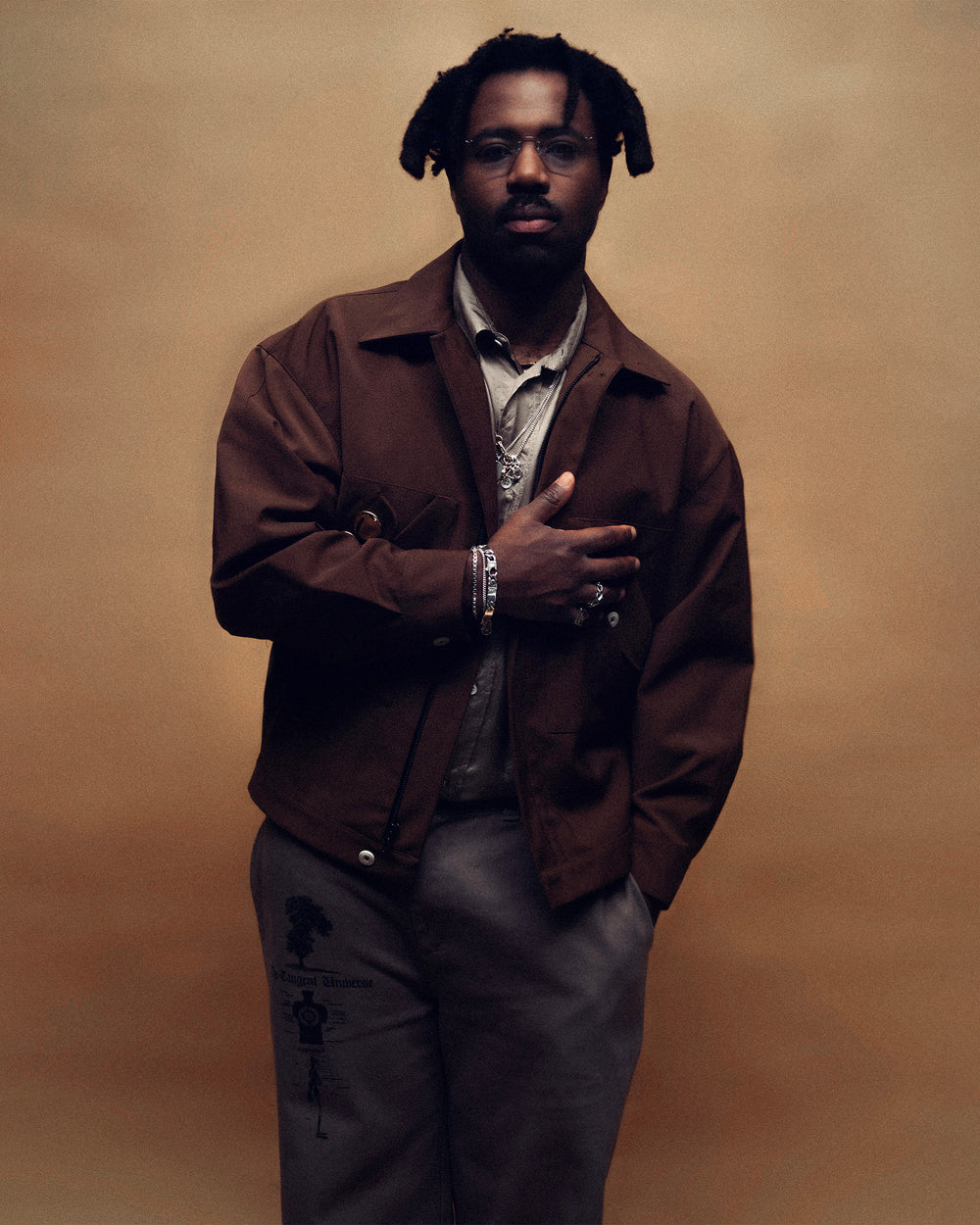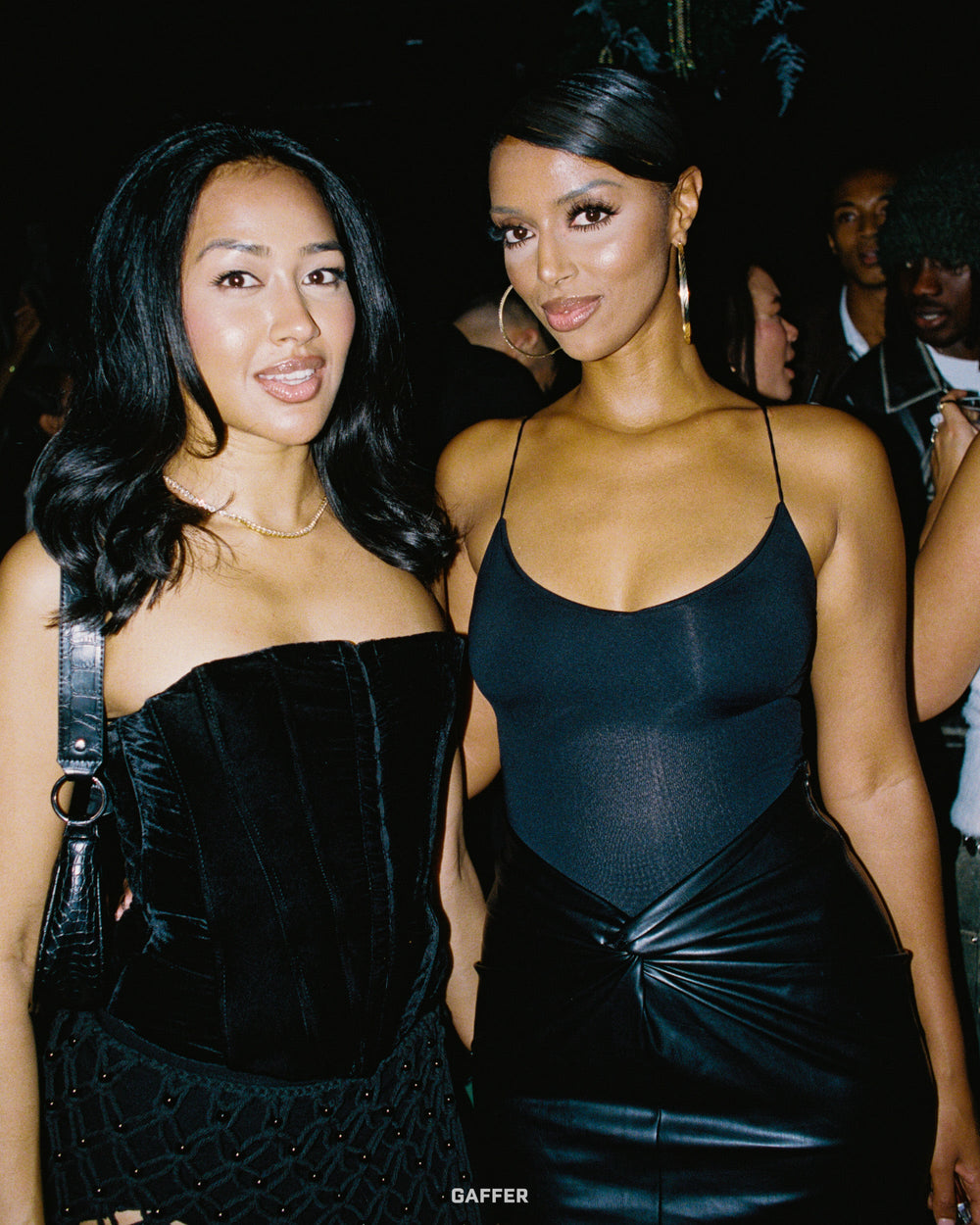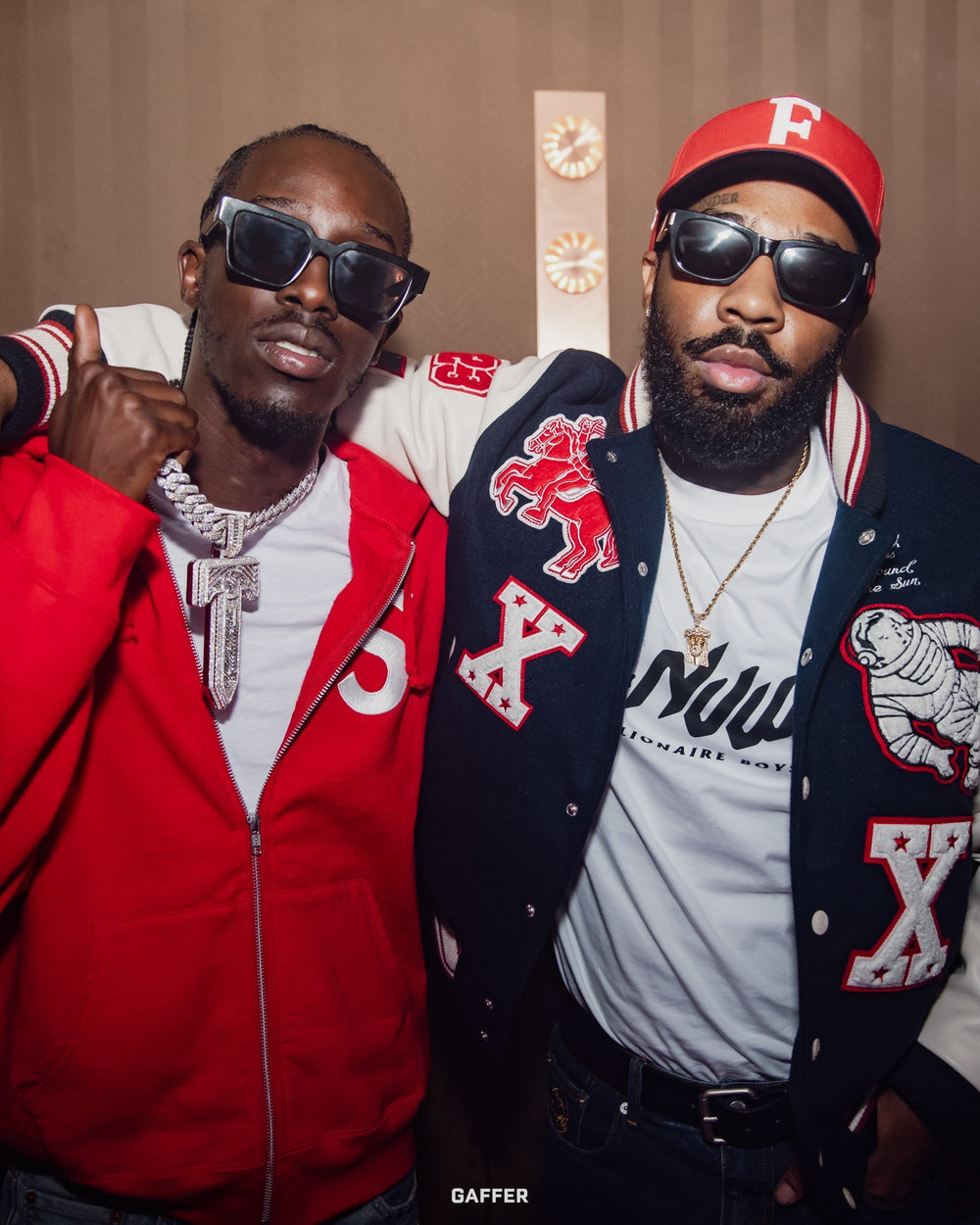Sampha: Sound Over Everything
Powered by

PHOTOGRAPHY: FILMAWI / STYLING: CARA HAYWARD / CREATIVE DIRECTION: CHARLOTTE MAYUMI PHIPPS / WORDS: AMBA MENDY
Sampha’s music doesn’t shout. It doesn’t chase. It just feels. A sound that lands in your chest before your head has time to catch up. It's raw, meticulous, and built on instinct more than industry trends. And that’s exactly how he likes it.
We know him as the artist with the kind of voice that lingers long after the song ends. The singer who turned grief into gospel on Process, and followed it up six years later with a genre-bending odyssey called Lahai. But Sampha isn’t just a vocalist. He’s a composer. A self-taught producer. A quiet innovator who can pull emotion out of thin air and layer it into something that feels eternal.
He builds worlds, not just songs.
“I always sang at home, I sang in the choir in primary school. But initially, and I still do enjoy building soundscapes and just connecting to that feeling. So songwriting isn’t actually my natural state of being. Some people love writing a song or a story. I just usually use my voice as an instrument to express some sort of feeling.”
That’s it right there. His voice isn’t just delivering lyrics. It’s shaping mood. Texture. Temperature. Whether he’s whispering or wailing, Sampha sings like he’s channelling something bigger than himself — a kind of internal weather report.
And when you hear it live? Game over.
Sampha’s live shows are something else entirely. It’s not about pyrotechnics or over-rehearsed patter. It’s about intimacy, even on big stages. Take his sold-out 2024 show at Alexandra Palace, I could only explain the feeling as otherworldly. There’s a stillness that descends when he sings. People hold their breath. He’ll sit at his piano like it’s an extension of his body, or slip behind a synth setup and lead a soundscape that makes you believe he’s transcended time and space. Every sound is considered. Every moment feels lived in.
There’s a reason the Lahai tour had people crying in their seats and losing their voices in standing ovations. It wasn’t just nostalgia for Process. It was something else, that rare feeling of being seen by music.
But you can never box him in as just the “emotional” artist. Yes, he feels deeply. But he also builds. From his early work with SBTRKT to his solo breakthroughs, Sampha has quietly soundtracked some of the most euphoric corners of our lives. His musical mind is part architect, part alchemist. He crafts sound like sculpture, shaving away until only the essential is left.
When I asked which songs of his he’d seal in a vault, he gave a list that reads like a spiritual journey:
“I’ve got a song called ‘Plastic 100°C’ that sums up a lot of stuff. ‘(No One Knows Me) Like The Piano’, ‘Re-Entry’ which is a song that came out on the deluxe, check it out. And last one would be ‘Spirit 2.0.’”
Those tracks aren’t hits for hit’s sake. They’re artefacts, snapshots of where he was emotionally, spiritually, sonically at a given moment. From the aching vulnerability of No One Knows Me to the transcendence of Spirit 2.0, it’s clear Sampha doesn’t just write music. He documents evolution.
And he’s not afraid to evolve.
He’s collaborated with the best: Solange, Kendrick, Drake, Frank, Stormzy, and somehow, his voice never blends in. It lifts and adds dimensions to the music just like the best instruments do. But the real magic happens when he’s alone with his machines, tweaking knobs, layering harmonics, turning grief into synth lines and joy into percussion.
A song he wished he’d written himself?
“Compositionally? ‘I Am The Black Gold Of The Sun’ by Rotary Connection.”
Of course he does. A sprawling, soul-drenched, genre-defying epic. That’s the world Sampha lives in. He’s not here for three-minute streaming dopamine hits. He’s building long-form emotion. Music that breathes.
And maybe that’s the most exciting thing about him. In an industry addicted to speed and virality, Sampha operates like an old-world craftsman. He disappears into the studio sometimes for years, then re-emerges with something you didn’t even know you needed.
And when it comes to the stage, that same energy translates. His performances aren’t recitals. They’re rituals. With every live arrangement, he reinterprets the work. Adds new flourishes. Lets the band stretch. You never hear a Sampha song performed the same way twice, and that’s the point.
He’s not obsessed with polish. He’s obsessed with truth.
When we spoke about what he has coming up for the rest of 2025, he didn’t launch into a polished press spiel. No tour dates, no secret collabs to tease. Instead, he folds inward, reflecting on the creative loop he’s always found himself in, part remembering, part relearning.
“Relearning how to make music because, as I said before, the things I appreciated about making Lahai over time, I kind of forgot. You know what I mean? Then it's just through the process I kind of remind myself, oh yeah, this again it's like I've been here befor,e because I tend to forget. So it's just being comfortable remembering my own process and remembering why I want to make music and just trying to challenge myself a bit.”
That’s the kind of answer you get from someone who treats music less like output and more like orbit, always circling, always shifting, but never off course.
Sampha doesn’t scream for attention. He earns it through detail, depth, and undeniable skill. He’s not chasing relevance. He just is relevant, precisely because he doesn’t contort himself to trends. That’s what makes him one of the most respected artists in the game. He doesn’t rush. He doesn’t overexpose. He just creates. Quietly. Powerfully. On his own terms.
And whatever comes next, whether it’s another album, another beautifully strange live show, or something we can’t yet name — one thing’s for sure: it will be worth the wait.
